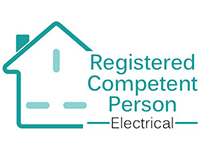In our fast-paced scientific and technological era, everybody from any part of the world relies heavily on electricity. Why should not you? Electricity sparks the rhythm of our lives – It is an unseen power behind your hairdryer’s noise and the glow of your favourite TV shows. Beyond comfort and entertainment, it can also help you provide light to the path to better healthcare, safer security, and smoother travel.
When an electrical issue arises in your setting, ensuring it is fixed safely should be your main goal. However, it is also important to remember that price matters, as everyone deserves to pay a fair amount for quality electrical work.
Electrician rates vary based on the area, level of experience, job difficulty, and whether they are independent or part of a large organisation. Understanding these factors helps you plan your budget more effectively and avoid unexpected costs.
How Much Do Electrical Contractors Charge?
In the United Kingdom, an electrician’s hourly rate typically ranges from about £40 to £60 for standard jobs, with emergency call-outs costing more, often up to £100 or more per hour. However, the charges vary significantly based on various factors. These factors include your geographic location, which affects labour and material costs. The electrician’s skill also significantly influences the total cost. Plus, the difficulty and particular job can affect the overall price.
Typical Pricing Structures
- Hourly Rate: The most widely used method, where you pay for the time spent on the job. A minimum charge or call-out fee might be applied to cover travel and initial set-up.
- Fixed or Project-Based Pricing: Some electricians charge a fixed fee for particular tasks, such as installing a light fitting or replacing an outlet.
Get an Accurate Estimate
Get Multiple Bids: Contact 3 to 4 electricians to receive a detailed, upfront quotation for your specific electrical project.
- Clarify All Costs: Ensure the bid covers labour, materials, permits, and any other possible charges.
- Consider the Total Cost: Remember that the hourly rate is only one part of the bill; what matters for your budget is the total cost.
Factors Influencing the Electrician Costs
When you examine the invoice from your electrician, the hourly rate may appear steep. However, there is more to that number than just the worker’s pay. Let’s guide you through the key aspects that determine your payment.
- Job Complexity & Scope: The difficulty and specific type of the job, such as simple tasks like replacing a single light fitting, are more economical. At the same time, larger projects like a comprehensive rewire, installing advanced systems like smart homes or EV chargers, are more expensive.
- Materials & Equipment: Materials used, as well as their quality and type, have a significant impact on the price. Higher quality or specialised materials usually cost more than standard options.
- Labour Costs: Electricians’ rates differ depending on their experience, certifications, and local demand for skilled labour. Union electricians generally charge higher rates.
- Geographic Location: Electrician rates tend to be higher in urban areas and regions with higher living costs.
- Travel & Call-Out Fees: Many electricians charge a call-out fee, which may cover travel costs, especially for jobs outside their usual service area or for emergency call-outs.
- Emergency Service: Urgent repairs or service requests outside regular hours (such as 24/7 service) incur a premium cost, often doubling the usual rate.
- Accessibility: The ease or difficulty of accessing the workspace can impact labour time and costs.
- Home’s Age & Condition: Older homes or those with outdated electrical systems might need more extensive work to meet modern standards, which raises costs.
- Permits: Projects that need permits, particularly larger ones such as a new build or extensive renovation, will increase the overall cost.
Note: Electrical work is a hazardous task and should only be carried out by a licenced and insured electrician to ensure safety and compliance with local building codes.
Common Electrical Problems
Not all electrical jobs incur the same charges due to various factors. Here are some common examples of electrical problems:
- Overloaded Circuits: Connecting too many appliances to one circuit can cause overheating and increase fire risk.
- Outdated Wiring: Many older UK homes have electrical systems that can’t handle modern appliances, causing faults.
- Faulty Wiring: Worn-out or poorly installed wiring can disrupt the electrical flow and result in overheating and short circuits.
- Tripped Breakers/Flickering Lights: These issues may signal overloaded circuits, faulty wiring, or other problems that need attention.
Estimated Costs for Common Fixes
- Socket Replacement: £25 – £80
- Fuse Box Upgrade: £400 – £800, or £800 – £1,200 for specific areas or more complex upgrades
- Adding a New Circuit: £150 – £800
- RCD Protection for Additional Circuits: £150 – £250 per circuit
- Rewiring a Single Room: £1,000 – £2,000
- Rewiring an Average House: £5,000 – £10,000
- EICR Costs: £100-£150 for 1-bed flat and £200-£300 or more for Larger properties.
Get Personalised Quotes from Our Electricians in Your Area
Partner with Ohmatic Electrical LTD for all your electrical projects and experience reliable, high-quality service every time. Our skilled electricians are here to help make your electrical needs smooth and stress-free. They collaborate with you to determine transparent pricing tailored to your project.
Reach out to us via 07982306772 or info@ohmaticelectrical.co.uk for a free, detailed quote. Let’s light up your settings together.





